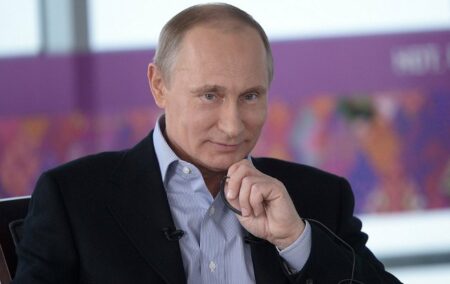In the intricate landscape of modern geopolitics, the notion of a ceasefire often emerges as a beacon of hope amidst the tumult of war.
However, one prominent figure has consistently refrained from mentioning such an option: Russian President Vladimir Putin.
What explains Putin’s reluctance to discuss ceasefires in the context of his domestic policy and international relations, particularly regarding Ukraine and the United States?
From the onset of the conflict in Ukraine, Putin’s rhetoric has largely omitted any suggestion of a ceasefire. Instead, his public statements have emphasised power politics, resilience, and an unwavering commitment to Russia’s strategic objectives. This absence of dialogue surrounding a ceasefire is not merely a matter of political strategy; it reflects a broader ideological stance rooted in power dynamics, nationalistic fervour, and a calculated approach to warfare.
Domestically, Putin’s regime has stifled dissent and tightly controlled public discourse. The Russian populace has been subjected to a relentless propaganda campaign that frames the conflict in Ukraine as a necessary defence of Russia’s national interest.
By not discussing a ceasefire, Putin simultaneously reinforces his image as a strongman and leader and quells any seeming weakness and potential opposition that might arise from calls for peace.
The absence of a ceasefire dialogue serves as a tool for maintaining control over the narrative and silencing any dissenting voices that advocate for diplomacy or negotiation.
On the international stage, on the other hand, Putin’s refusal to entertain the prospect of a ceasefire with Ukraine can be understood through the lens of strategic calculation.
Engaging in discussions about a ceasefire would imply a willingness to compromise, an acknowledgment of the legitimacy of Ukraine’s sovereignty, and a recognition of the international community’s condemnation of Russia’s military actions. Such concessions run counter to Putin’s broader geopolitical ambitions, which are predicated on restoring Russia’s influence and asserting its dominance in the post-Soviet space.
Moreover negotiating with adversaries like Russia, that are steadfastly focused on projecting an image of power, poses significant risks to liberal democracies worldwide.
When leaders engage with those who do not even entertain the notion of ceasing hostilities, they risk undermining the foundational principles of the peace associated with the liberal world order. The absence of a commitment to dialogue and negotiation can set a dangerous precedent, suggesting that ‘might makes right’, and eroding the norms that uphold international law and human rights.
Putin’s military doctrine further reveals his reluctance to take peace seriously.
The Russian approach to conflict has increasingly embraced asymmetrical warfare tactics, characterised by unconventional strategies that leverage disinformation, cyber operations, and proxy engagements. This doctrine prioritises the pursuit of objectives through means that avoid traditional warfare, thereby complicating the potential for ceasefire negotiations.
By employing these tactics, Putin can maintain a façade of plausible deniability while simultaneously advancing Russia’s strategic goals.
The implications of Putin’s silence on ceasefires extend beyond the battlefield.
By fostering an environment devoid of dialogue about peace, he perpetuates a cycle of violence that destabilises not only Ukraine, but also the broader European security architecture. He makes of Russia a permanent, unreliable wildcard.
The absence of a ceasefire negotiation undermines the prospects for diplomatic resolution, exacerbating humanitarian crises and prolonging suffering for civilians caught in the crossfire.
The international community, particularly the United States and NATO, must navigate this complex landscape with caution.
While sanctions and military support for Ukraine are critical components of a robust response to Russian aggression, a lack of engagement in ceasefire discussions may further entrench adversarial positions. Diplomacy, even in the face of conflict, remains an essential tool for de-escalation and the eventual restoration of stability.
However, it is crucial for liberal democracies to recognise that engaging with stubborn adversaries that disregard the principles of ceasefire, peaceful resolution, and honest reciprocity can inadvertently embolden authoritarian regimes.
This dynamic not only threatens the immediate security of states like Ukraine but also poses a broader existential threat to the world order, where the rule of law and human rights are paramount.
Vladimir Putin’s refusal to discuss ceasefires highlights a domestic and extraterritorial ideological commitment to power, control, and strategic advantage. This silence, rooted in a complex interplay of propaganda, military doctrine, and geopolitical ambition, serves to perpetuate conflict and hinder prospects for peace.
As the situation evolves, the international community must remain vigilant and committed to fostering dialogue, even in the absence of overt willingness from Moscow. The path to peace may be fraught with challenges, but the pursuit of a cease-fire remains a crucial step in breaking the cycle of violence and restoring stability in the region.
The views of the writer are not necessarily the views of the Daily Friend or the IRR.
If you like what you have just read, support the Daily Friend.

